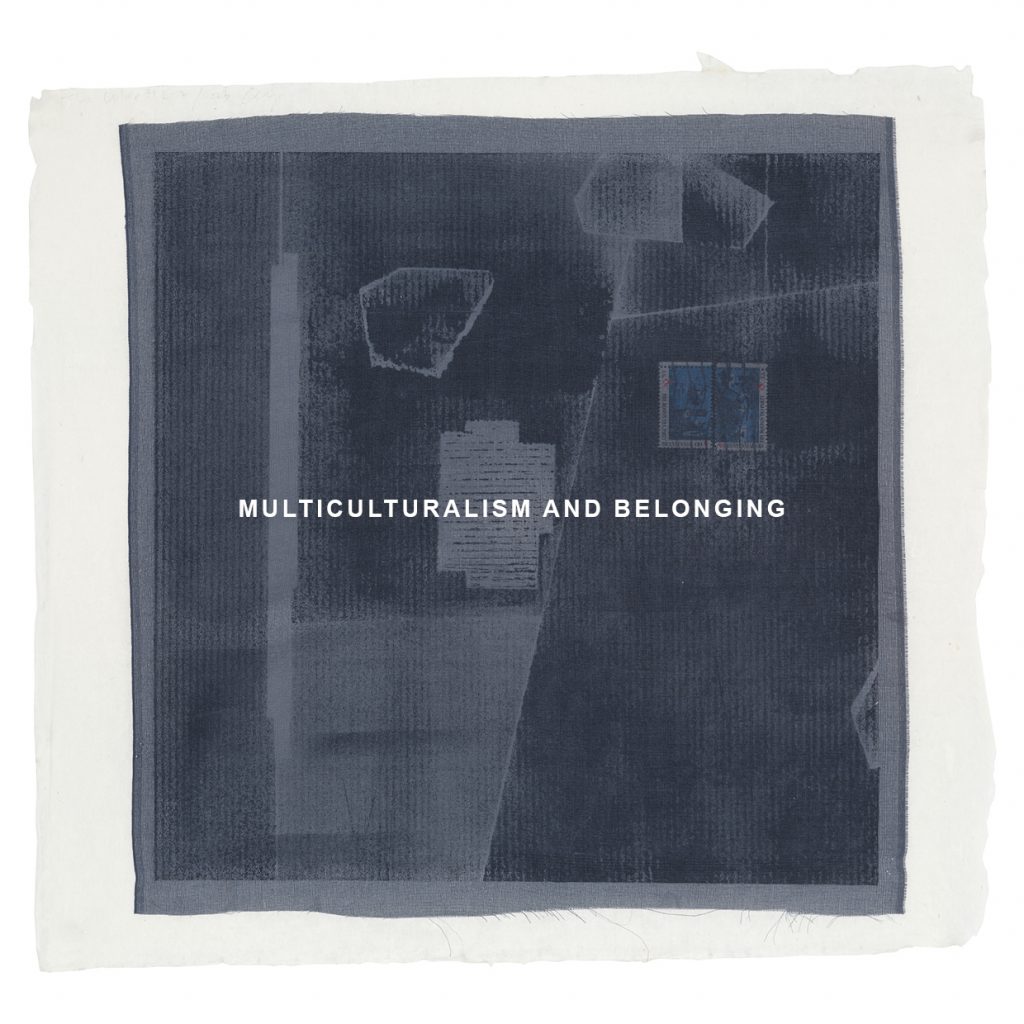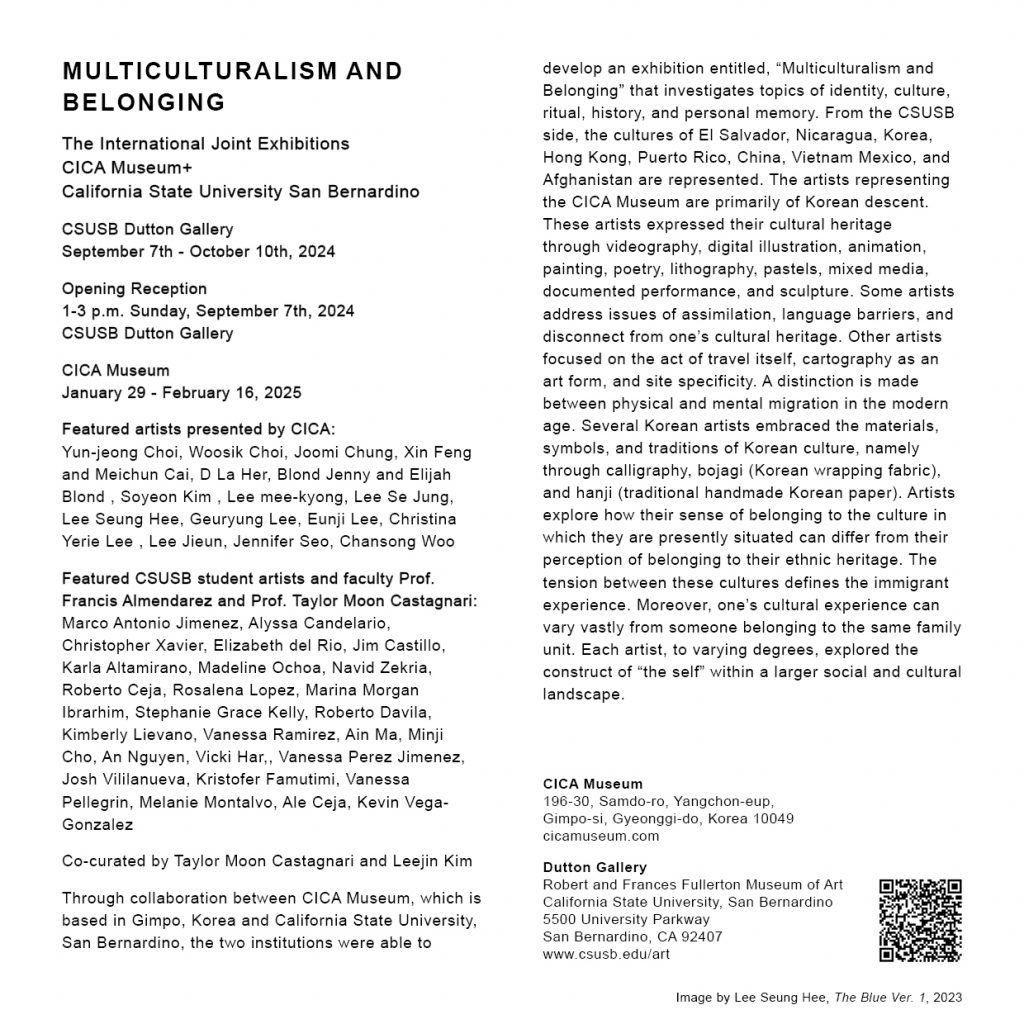The International Joint Exhibitions
CICA Museum + California State University San Bernardino
CSUSB Dutton Gallery
September 7th – October 10th, 2024
Opening Reception
1-3 p.m. Sunday, September 7th, 2024
CSUSB Dutton Gallery
CICA Museum
January 29 – February 16, 2025
Featured artists presented by CICA:
Yun-jeong Choi, Woosik Choi, Joomi Chung, Xin Feng and Meichun Cai, D La Her, Blond Jenny and Elijah Blond , Soyeon Kim , Lee mee-kyong, Lee Se Jung, Lee Seung Hee, Geuryung Lee, Eunji Lee, Christina Yerie Lee , Lee Jieun, Jennifer Seo, Chansong Woo
Featured CSUSB student artists and faculty Prof. Francis Almendarez and Prof. Taylor Moon Castagnari:
Marco Antonio Jimenez, Alyssa Candelario, Christopher Xavier, Elizabeth del Rio, Jim Castillo, Karla Altamirano, Madeline Ochoa, Navid Zekria, Roberto Ceja, Rosalena Lopez, Marina Morgan Ibrarhim, Stephanie Grace Kelly, Roberto Davila, Kimberly Lievano, Vanessa Ramirez, Ain Ma, Minji Cho, An Nguyen, Vicki Har,, Vanessa Perez Jimenez, Josh Vililanueva, Kristofer Famutimi, Vanessa Pellegrin, Melanie Montalvo, Ale Ceja, Kevin Vega-Gonzalez
Co-curated by Taylor Moon Castagnari and Leejin Kim


Through collaboration between CICA Museum, which is based in Gimpo, Korea and California State University, San Bernardino, the two institutions were able to develop an exhibition entitled, “Multiculturalism and Belonging” that investigates topics of identity, culture, ritual, history, and personal memory. From the CSUSB side, the cultures of El Salvador, Nicaragua, Korea, Hong Kong, Puerto Rico, China, Vietnam Mexico, and Afghanistan are represented. The artists representing the CICA Museum are primarily of Korean descent. These artists expressed their cultural heritage through videography, digital illustration, animation, painting, poetry, lithography, pastels, mixed media, documented performance, and sculpture. Some artists address issues of assimilation, language barriers, and disconnect from one’s cultural heritage. Other artists focused on the act of travel itself, cartography as an art form, and site specificity. A distinction is made between physical and mental migration in the modern age. Several Korean artists embraced the materials, symbols, and traditions of Korean culture, namely through calligraphy, bojagi (Korean wrapping fabric), and hanji (traditional handmade Korean paper). Artists explore how their sense of belonging to the culture in which they are presently situated can differ from their perception of belonging to their ethnic heritage. The tension between these cultures defines the immigrant experience. Moreover, one’s cultural experience can vary vastly from someone belonging to the same family unit. Each artist, to varying degrees, explored the construct of “the self” within a larger social and cultural landscape.